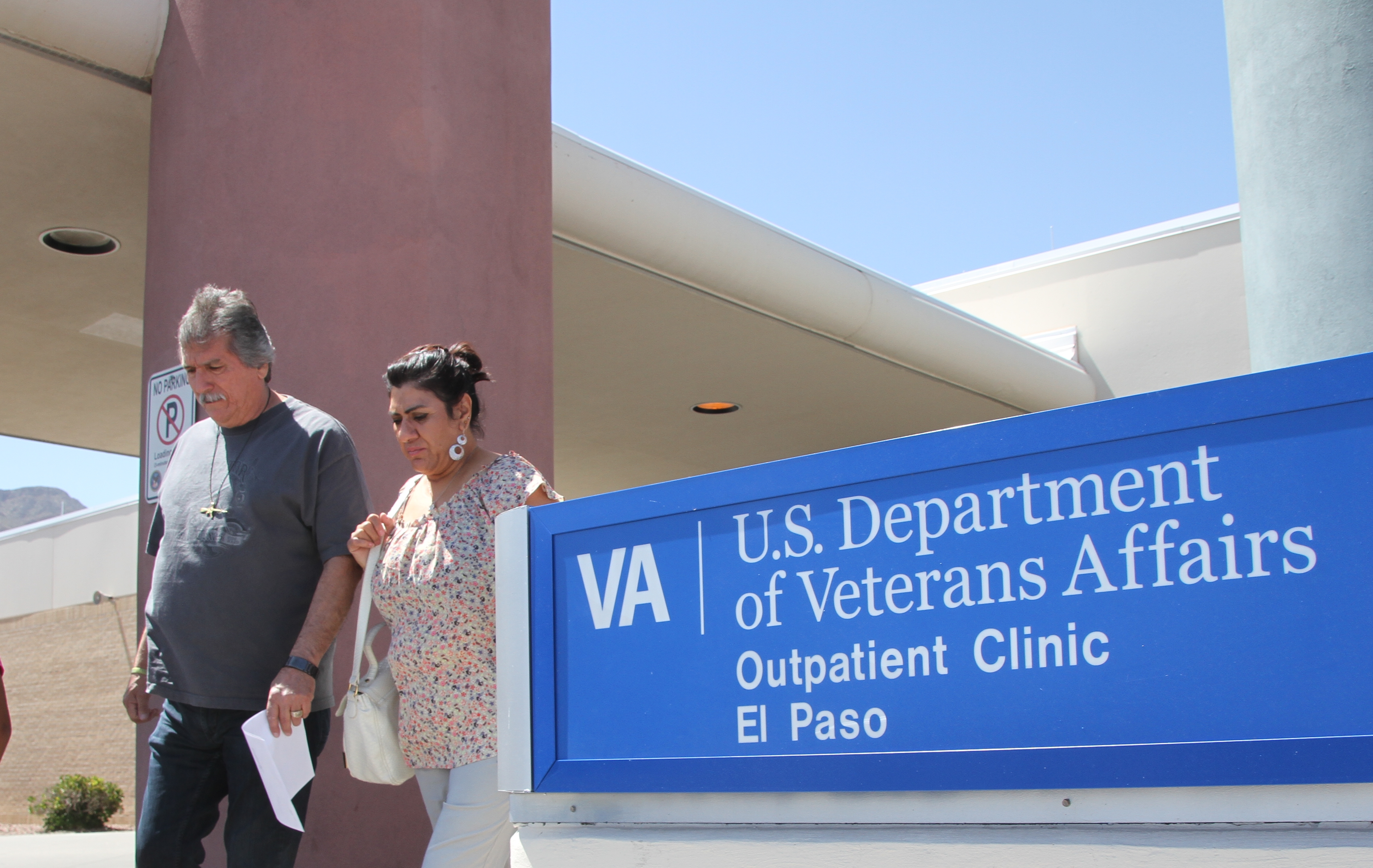VA just a symptom of government bloat
Wednesday, June 25, 2014
 David and Marianne Trujillo exit the Veterans Affairs facility in El Paso, Texas. Some Veterans Affairs facilities in Texas have among the longest wait-times in the nation for those trying to see a doctor for the first time, according to federal data. It's not just veterans who sometimes have to wait for health care. Depending on where you live and what kind of care you want, in parts of the country it's not always easy for new patients to get a quick appointment.
David and Marianne Trujillo exit the Veterans Affairs facility in El Paso, Texas. Some Veterans Affairs facilities in Texas have among the longest wait-times in the nation for those trying to see a doctor for the first time, according to federal data. It's not just veterans who sometimes have to wait for health care. Depending on where you live and what kind of care you want, in parts of the country it's not always easy for new patients to get a quick appointment.You can't pin the entire Veterans Affairs health care mess on President Barack Obama, but it's certainly worsened under his tenure. However, he and every other president who has let one more government-run agency continue to bloat deserves some blame.
Wherever there are large government agencies, there's bloat. Too many employees. Too many people shuffling papers. Too many undeserved promotions. Too many bonuses.
Late last week, it was revealed nearly 80 percent of senior executives at the Department of Veteran Affairs got performance bonuses in 2013. With those numbers, it would stand to reason the department had a really good year in an even better economic climate.
But, with widespread treatment delays at VA centers across the country and what many have called preventable deaths, it would be hard to convince anybody of that.
Rep. Jeff Miller, R.-Fla., during a House Veterans Affairs Committee meeting last week, said about the VA what most people understand is the climate at most large government agencies.
Bonuses instead of being given for work above and beyond the call of duty, he said, are "seen as an entitlement and have become irrelevant to a quality work product."
Other House members in the meeting, Democrats and Republicans, said the government agency suffered from "grade inflation" or had set the bar for performance so low that "anybody could step over it."
The most recent figures show about 10 percent of veterans seeking medical care at VA hospitals and clinics have to wait at least 30 days for an appointment, more than 56,000 had to wait at least three months for an initial appointment, and an additional 46,000 veterans who asked for appointments over the past decade never got them.
Yes, it's a poor way to treat veterans who stood up for the United States in various wars and conflicts. But, chances are, the same bloat, the same undeserved bonuses, the same lack of efficiency could be found in almost every government agency.
Since the Great Recession took hold in 2008, many private-sector businesses cut employees to remain solvent. And with a slow recovery, many of those businesses have realized they can -- and in some cases have to -- continue to get by with fewer employees.
But not the federal government. Since 2008, federal civilian employment is up 160,000 and is expected to reach almost 1.4 million people in 2015, according to the Office of Management and Budget.
The solutions are not easy or quick. Because even if you know that your neighbor, Mabel, does very little work at her federal, state or county agency, that she and her too-large staff do more chattering and talking about the weekend than they do work, you still don't want to see Mabel out of work because she's a single mother with three teenagers.
But consider how many Mabels populate governments across the country.
Federal laws have authorized many of the programs and agencies, and curbing them is a labyrinthian and Herculean task. For the last 70 years, eager lawmakers -- Republicans and Democrats -- have arrived in Washington ready to make cuts and retired years later as entrenched supporters of this program and that.
James C. Capretta, a senior fellow at the Ethics and Policy Center, a visiting fellow at the American Enterprise Institute and a contributor to nonpartisan public policy agency e21, recently suggested a few ways to start.
• Allow time-limited authority for a newly elected president to reorganize domestic agencies and consolidate duplicative programs.
• Tap top IT talent to plot a road map for improved service at high-contact agencies (IRS, Social Security, Medicare, etc.) and give the agencies the resources to make it happen. Meanwhile, the president should be given the authority to eliminate unnecessary duplicative bureaucracy with better performance through online interaction.
• Hire top federal managers for major operational agencies and give them responsibility to improve the performance of the agencies to which they've been assigned. That responsibility would include moving resources within their agencies and going outside the established funding silos that inhibit effective management discretion today.
Washington is highly partisan these days, but one need look back only 70 years to World War II, when then-Sen. Harry Truman led a bipartisan congressional special committee to find and correct problems of waste, inefficiency and profiteering in U.S. war production, to find an example of how things might get done.
That committee, according to historians, saved an estimated $10 billion to $15 billion in military spending and, in turn, thousands of lives of U.S. servicemen.
With the Affordable Care Act, if left in place, likely to engender a much larger version of the VA problems, an efficiency solution like the Truman Committee is needed now.